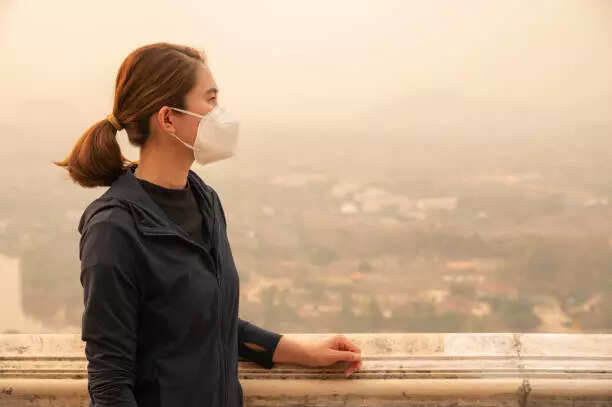Air Pollution Safety: How to Clean and Store Your Mask Properly
With air pollution levels rising across cities, wearing a mask has become essential for protecting your lungs from harmful particles like PM2.5 and PM10. But simply wearing a mask isn’t enough maintaining proper hygiene is crucial to ensure it continues to offer effective protection. Here’s how you can clean, store, and handle your mask the right way during high-pollution days.
Pick the Right Mask
Choose masks that are designed for pollution protection such as N95, N99, or KN95. These are built to filter out microscopic pollutants. Cloth masks, while reusable, don’t offer strong protection against fine particles.
Avoid Reusing Disposable Masks
Single-use masks are meant for limited wear. Using them repeatedly can trap pollutants, bacteria, and moisture, reducing their filtering efficiency. Dispose of them safely after one full day of use.
Wash Reusable Masks Daily
If you’re using a reusable mask, clean it every day. Hand-wash it gently with mild detergent and warm water. Rinse thoroughly and let it air-dry completely before wearing it again moisture can harbor bacteria. Avoid harsh chemicals or bleach, as they can damage filtration layers.
Store It Safely
Always keep your mask in a clean, dry pouch or breathable cloth bag. Avoid storing it in pockets, handbags, or damp areas where it can collect dust or germs.
Replace When Needed
Even reusable masks lose efficiency over time. Replace them every few weeks or if they show signs of wear, reduced airflow, or damaged straps.
Care for Your Skin Too
Long hours of mask use can cause irritation. Keep your face clean and moisturized, and take short breaks when it’s safe.
A clean mask means cleaner air protect yourself smartly by keeping your gear as fresh as the air you hope to breathe.

Pick the Right Mask
Choose masks that are designed for pollution protection such as N95, N99, or KN95. These are built to filter out microscopic pollutants. Cloth masks, while reusable, don’t offer strong protection against fine particles. Avoid Reusing Disposable Masks
Single-use masks are meant for limited wear. Using them repeatedly can trap pollutants, bacteria, and moisture, reducing their filtering efficiency. Dispose of them safely after one full day of use.Wash Reusable Masks Daily
If you’re using a reusable mask, clean it every day. Hand-wash it gently with mild detergent and warm water. Rinse thoroughly and let it air-dry completely before wearing it again moisture can harbor bacteria. Avoid harsh chemicals or bleach, as they can damage filtration layers. Store It Safely
Always keep your mask in a clean, dry pouch or breathable cloth bag. Avoid storing it in pockets, handbags, or damp areas where it can collect dust or germs.Replace When Needed
Even reusable masks lose efficiency over time. Replace them every few weeks or if they show signs of wear, reduced airflow, or damaged straps. Care for Your Skin Too
Long hours of mask use can cause irritation. Keep your face clean and moisturized, and take short breaks when it’s safe. A clean mask means cleaner air protect yourself smartly by keeping your gear as fresh as the air you hope to breathe.
Next Story